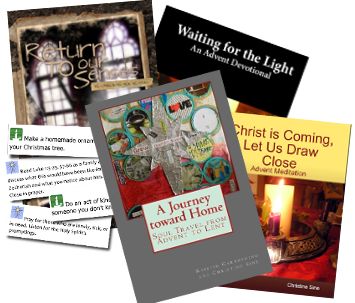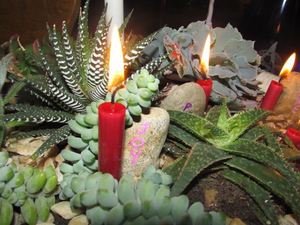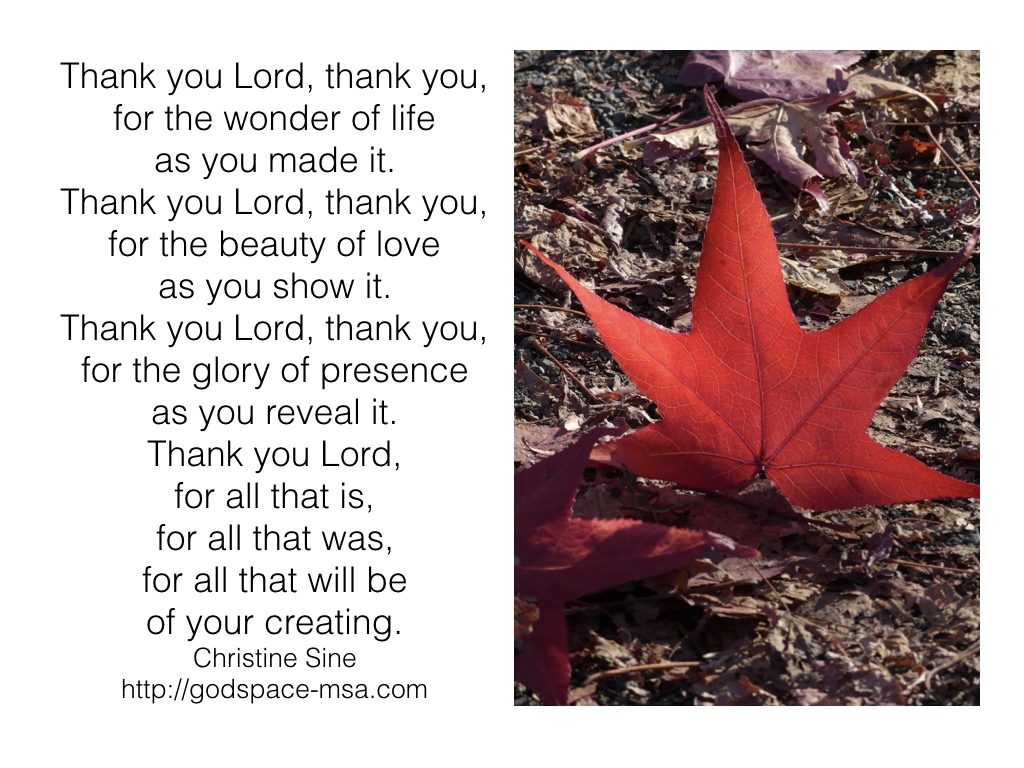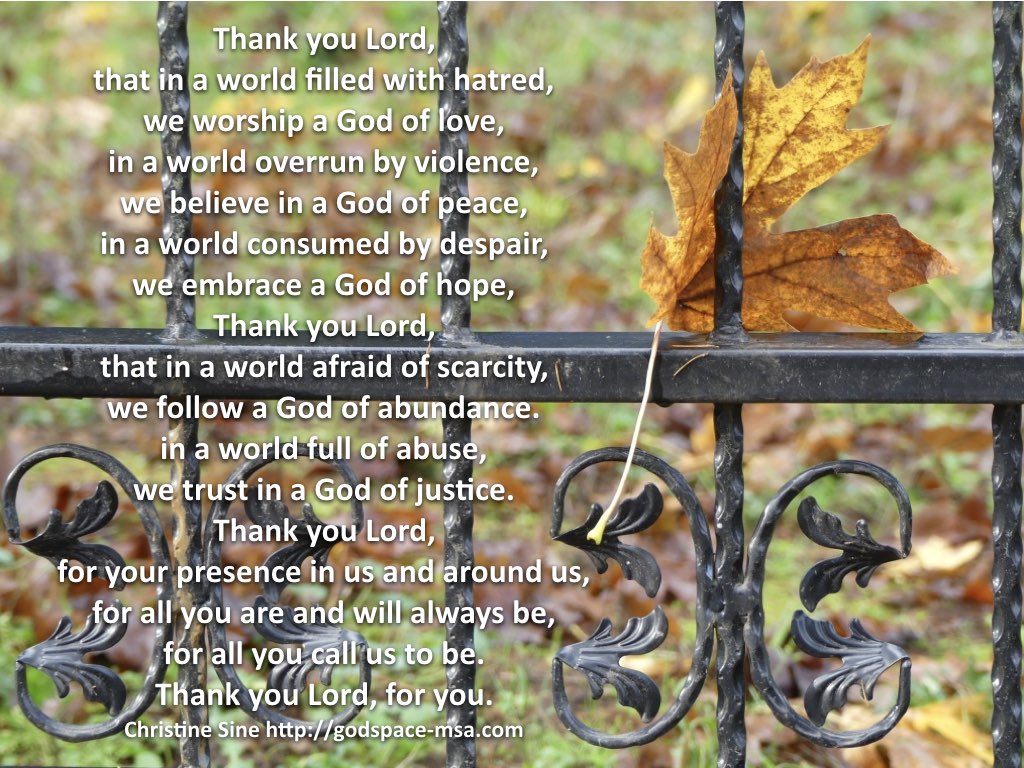 On Advent Sunday, as we ready ourselves to remember the infant-birth arrival on earth of our Lord and Saviour, the first candle is lit on an Advent wreath as an emblem of our faith. It’s a sign offering hope to all while they make their way through this world’s darkness, and a glowing reminder of the luminous Light of Christ in our lives.
On Advent Sunday, as we ready ourselves to remember the infant-birth arrival on earth of our Lord and Saviour, the first candle is lit on an Advent wreath as an emblem of our faith. It’s a sign offering hope to all while they make their way through this world’s darkness, and a glowing reminder of the luminous Light of Christ in our lives.
Preparation of home and heart begins to mark the season, leading to our Christmas Day celebrations. Candles burning brightly in a house suggests a warm welcome is being offered. Our homes are meant to be habitations of the heart, places of solace and welcome. Sadly, like many others, I didn’t define“home” quite like that as a child.
Ours was a lonely place I longed to escape from, a site of verbal fights, resentful chill and an abiding air of animosity. I ached inside for genuine love and affection, for the right kind of attention. Maybe a soul is always seeking such things—a haven of peace and rest to feel happy in, a place where we are loved just as we are.
Whether it’s a mud hut or a mansion, I believe a home is more about relationship than bricks and mortar. It should be a safe place, a shelter and sanctuary, though life can be cruel and a family not all you hoped they would be. Ideally, home should be where empty hearts, as well as empty bellies, get filled. A place of belonging, a space to be accepted, be yourself, be loved, and receive a warm welcome that never gets worn out.
As I mull over ways to make room for Jesus in this season, I marvel at God Incarnate making His home on earth, inviting us now to open our hearts and homes to Him. Jesus took on frail human flesh, identified completely with our weakness, and issued an awesome invitation:
God’s home is always open to the hurt and the broken, the lost and the lonely, the homeless and orphaned, the rootless and forgotten, those needing saving from themselves, requiring rescue and release. There is no rejection here, only unconditional love.
Heaven’s only begotten Son becomes our Saviour, Brother, Friend. We are adopted into God’s family, made heirs with Christ, become children of Hope and Promise, as Holy Spirit lives within us. How does this shape our attitude to Advent? We actively remember Jesus coming to earth and we search for signs of Him with us in the here and now.
Steep descent
Watch, wait, wonder
and ponder anew
the steep descent
of Love breaking through
to our humanity
bringing light, hope
and clarity to see
how much Father God
desires to be reunited
with you and me
©JoyLenton2016
We look for the Light of His presence in a world growing darker by the day, our hopes ignited by the thought of our Forever Home and Jesus’ glorious reappearing to come. And so we read, reflect, ponder and pray, decorate, celebrate and contemplate the wonder of it all.
Most of all, we make room to receive Jesus anew. Let Him be born again in our thankful hearts. We offer Him a home, a place to feel welcome, a heart journeying ever closer to the spiritual homeland of His presence and a mind engaged more on the heavenly and eternal than the temporary and temporal.
Here’s a helpful link you might like to check out if the practice of lighting Advent candles is new for you, as it is for me. It explains about the candles’ symbolism and suggests why we might enjoy participating in this practice, especially as a family activity. And here’s a lovely Advent candle liturgy from the Godspace archives that you could use as well.
What does the word “home”conjure up for you?
This post is out of date, please check out our latest resource here.
It’s time to gear up for Advent and Christmas. One of the things we love to do at MSA is to provide you with helpful resources as you journey through the year. Advent and Christmas mark the beginning of the church calendar and, as you can see from the vast number of resources we have available, this is one of our favorite times of the year.
Since we’re all pretty busy this time of year I’ll forgo the chit chat and jump right to the resources.
First, let me tell you that our Advent Photo Challenge is back! Jean Andrianoff again challenges us with her daily reflections and topical challenges on our Advent theme “Entering the World with Jesus: Looking for Jesus in all the right places”:
 Remember to
Remember to
- Week 1: …in our home
- Week 2: …in our neighborhood
- Week 3: …in our city
- Week 4: …in our world
The Photo Challenge page will be up soon and filled with reflections to spur your imagination and creativity.
Check out our prayer card sets and other resources. They make wonderful Christmas presents!
Devotionals
- A Journey Toward Home: Soul Travel from Advent to Lent
- Waiting for the Light: an Advent Devotional
- We have nine different Advent devotional videos
Free Resources
And as always, Christine has updated several of her resource lists for the season:
- Advent Activities for Families and Kids, Updated for 2016

- Preparing for a Blue Christmas – New Creative Ideas
- Getting Ready for Advent/Christmas Worship Resources for 2015
- Advent Candle Light Liturgy
- Helping Kids Give Back This Advent/Christmas
- Music from a Rich Array of Traditions
- What On Earth Are the O Antiphons
- Celebrate with Simplicity this Christmas
We at Mustard Seed Associates // Godspace wish you a reflective and joy-filled Advent,
Andy Wade
Director
Mustard Seed Associates // Godspace
Andy Wade –
Keep on loving each other as brothers and sisters. Don’t forget to show hospitality to strangers, for some who have done this have entertained angels without realizing it! Remember those in prison, as if you were there yourself. Remember also those being mistreated, as if you felt their pain in your own bodies. Hebrews 13:1-3

Mr. Lee welcomes us to his home.
Hospitality is a tricky thing. In today’s modern western world, we often think of entertainment or putting on a big party as hospitality. Although that can be true, hospitality is really about cultivating deep relationships by making space in our hearts and schedules for another.
This distinction is important to keep in mind as we head into this holiday season. Yes, we want fun and celebration. God delights in our joy. But God invites us deeper: deeper into one another’s lives, deeper into the lives of those in our neighborhood, deeper into love, and life, and community.
In the Old Testament, part of the tithe was set aside for family celebration of God’s goodness (Thanksgiving?) See Dt. 12:7. Later, in Dt. 26:11-12, we have this elaboration:
Afterward you may go and celebrate because of all the good things the LORD your God has given to you and your household. Remember to include the Levites and the foreigners living among you in the celebration. “Every third year you must offer a special tithe of your crops. In this year of the special tithe you must give your tithes to the Levites, foreigners, orphans, and widows, so that they will have enough to eat in your towns.
Hospitality is given to family and friend, stranger and even foe. At one point Jesus instructs:
When you give a luncheon or dinner, do not invite your friends, your brothers or relatives, or your rich neighbors; if you do, they may invite you back and so you will be repaid. But when you give a banquet, invite the poor, the crippled, the lame, the blind, and you will be blessed. Although they cannot repay you, you will be repaid at the resurrection of the righteous. (Luke 14:12-14)
Could it be that the people of Jesus’ day had forgotten some of the key elements to hospitality? Had it become purely a social nicety with records kept of whose turn it was to have the others over? Had their focus on the “acceptable people” pushed aside God’s desire for the inclusion of all?
Jesus made room in his life by giving and accepting hospitality from “tax collectors and sinners”(Mk. 2:15), “unclean women”, lepers, Gentiles, Samaritans, and others shoved to the margins of both religious and secular life. Jesus was demonstrating what it means to love family, neighbor, and even enemy. His actions often were in-your-face to the religious expectations of the day.
These ideas swirl in my mind as I ponder the nature of hospitality today.
- Have we lost sight of God’s desire for hospitality?
- Who are the people I invite to my table?
- Who are the people I accept invitations from?
- What does it look like to create space for relationships to form, grow, and flourish?
I wrote the following poem while living in Hong Kong. Every week a group of us would buy rice box dinners and tea, then fan out on the streets of Mong Kok to visit with the “street sleepers”. We would share meals, sit on the concrete (considered not acceptable), share stories, and pray. It was here that I learned, once again, what hospitality can look like.
They were not our projects. They were not really even our ministry. They became our friends. Mr. Lee was one such friend. He died suddenly while I was away in the US. I didn’t have a chance to say goodbye, and it seemed the city was all too eager to sweep his memory away. Hospitality – his, mine, and God’s – ensures I will never forget.
In Memory of Mr. Lee
Cardboard furniture
Warm hand outstretched in greeting.
Who would have thought this pearl of friendship
Would be hidden in a simple box of rice,
Purchased with only a few kind words?
Rats scurry for food
Carelessly tossed on the cool, damp concrete.
For ten years this was home.
For two years a place of fellowship
Where those filled with Jesus’ Spirit
Encountered another created in His image.
For eight long years
Tossed aside by the masses
Despised, rejected, familiar with grief.
But for those with eyes to see,
A painful reminder of how easily we
Abandon the One who fashions us in His likeness.
Mr. Lee, I will miss you.
Slipping from life just as you lived,
Alone, unnoticed by passersby.
For a short while we shared this journey of life.
Your home is now swept clean,
The brutal efficiency of the city
Leaves no trace
That this corner was once a place of worship.
Yet here,
Amid crowds, dirt, rats, and cardboard
We both encountered the love and grace of God.
May we meet once more
At the feast of God,
The banquet of life,
Where death, sorrow, and crying are no more.

by Jenneth Graser. All Rights Reserved
Bethlehem
We seek a filler
like a chocolate cake with a hidden
mousse centre.
It delivers a bang on the tastebuds
riding an endorphin roller coaster
and we’re back at the starting point again.
No amount of round and round the circular route
will lead to a different destination.
When we risk using a map,
we are on our way to somewhere new.
A rut can be filled in with soil
and a nursery provides petunias
and violets aplenty.
Now the rut is one bright garden.
No more pressing the purchase button
on spontaneous urges
to make everything look a bit better,
a bit more up to date, more right.
No more pockets with holes in the bottom
and coming home with bags
of new-new things that make us
feel so good, until they are placed on the shelf
and start gathering dust with the feelings of
empty needing to be filled.
That emptiness is met by the hands of
a baby omnipotent
who started life on earth
in the space of a little human frame.
Now no matter how old we feel, or stale,
His little hands can flail about
under the discontent of longing
to create a new day
under a new star
in a place in our hearts called Bethlehem.
We may begin again
and give out of the abundant peace
that grows with petunias and violets
in reconstituted garden beds.
It feels like the dew
is settling on the grass,
as striving becomes
mulch for the flowers
to grow-and-grow.
1 Timothy 6:6 “Yet true godliness with contentment is itself great wealth.
This post is part of our November Theme Preparing for Advent.
It is almost Thanksgiving here in the U.S. This is a celebration that I have embraced with enthusiasm as an opportunity to think about all that I have to be grateful for. In fact a few years ago I decided to start Advent early with a week of gratitude. It is a practice that I find very inspiring.
There is so much. I think about what I am grateful for in my personal life, what I am grateful for in my marriage, with my friends and the community I live in, and what I am grateful for in the broader community God has placed us in. I am particularly grateful for God, God’s presence in me, in the people around me and in creation. The prayer above was written at the begin of my week on gratitude and this prayer today.
 For more thanksgiving prayers and resources and for some great thanksgiving songs check out our Thanksgiving resource list.
For more thanksgiving prayers and resources and for some great thanksgiving songs check out our Thanksgiving resource list.

by Christine Sine.
Hospitality in ancient Palestine was more than a courtesy extended to friends and travellers. It was the means that villages used to determine if strangers were friends or enemies, a threat or an asset to the community. Extending hospitality by providing food, water and shelter was a way to temporarily adopt strangers into the community and hopefully convert a potential threat into a friendly alliance. Sometimes oil was poured over the head of the stranger as a sign of welcome.
It is probable that it was these customs that David referred to in Psalm 23:
You prepare a feast for me
in the presence of my enemies.
You honor me by anointing my head with oil.
My cup overflows with blessings. (Psalm 23:5)
In this verse, David is probably not talking about God preparing a banquet for us to eat while our enemies sit around with empty stomaches drooling over the lavish food we are enjoying. This is a verse that speaks of the ancient practice of hospitality, an invitation to sit down and enjoy a meal with strangers and those we perceive as a threat, an encouragement to seek for understanding and reconciliation rather than division and hatred.
What is Your Response?
We live in a world of great division where there is much necessity for all of us to sit down over a meal with those we disagree with and see as a threat. As you think about this what comes to mind? What situations are you currently facing that might be defused by sitting around the table during the thanksgiving or Advent season and sharing a meal? Where have you seen God prepare a feast that has brought enemies together and overcome fears and disagreements? How could you prepare a meal “in the presence of your enemies” and offer open hospitality to those you disagree with?
In Jesus’ day, this kind of hospitality was considered more than a commandment. It was a sacred obligation, filled with the joy of serving both others and God. Those that did not extend hospitality to orphans, widows and the homeless could be rejected. Like early monastics and Celtic Christians, Jews believed that sometimes in welcoming strangers they welcomed angels into their midst.
Jesus repeatedly demonstrated his joy in offering hospitality as he fed the crowds and shared a passover meal with his disciples. Even after his death, he came back to share meals as a way to communicate his message of salvation and hope.
As I thought about this today, the picture that came to me was of Jesus sitting and eating that last meal with Judas. Then I saw him get down and wash Judas’s feet. He must have realized that Judas was about to betray him, but he still reached out in embrace not division. I wonder if he hoped that through this gracious act of hospitality towards him Judas would change his mind.
What is Your Response?
At communion each week our priest says “All are welcome at the table” yet the welcome of God begins long before the institution of communion at the last supper. Radical hospitality is at the heart of the festive season. In fact the whole story of Christmas is about the radical hospitality of a God who comes to welcome us all home to the kingdom banquet.
Many feel surrounded by enemies in the current political climate. How do we respond in these hard times? This is not a time for complacency but for commitment, not for hate but for love, not to close doors but to open them, not for violence but for peace, not to wound but to heal, not to bring division but to inspire reconciliation.
There is no better place to learn to listen, not to the answers in our own heads but to the unsettling questions others are asking, than when sitting around the table sharing a meal. And there is no better time of year to take Jesus radical call to hospitality seriously and reach out with love not hate, seeking to build bridges not walls, to embrace compassion not conflict. Christmas is about listening to the voice of God entering our world and it is in the place of listening that change can begin for all of us.
As we move towards Thanksgiving (at least here in the U.S.), Advent and Christmas, think about the people you disagree with, want to exclude or think are about to betray you. How could you reach out with radical hospitality to them at this season? Sit with your eyes closed and listen to this version of Psalm 23. What names come to mind? Perhaps it is someone like Mary, an unwed mother who could have been thrown out by her family. Or someone like the shepherds, despised by the society around them yet welcomed to the manger. Or the wise men, foreigners like immigrants, refugees and those of other religions. What are the first steps you need to make to reach out in a spirit of hospitality and reconciliation? How could you embrace the radical journey of hospitality?
Closing Prayer
Lord, help us to listen deeply not to the answers in our own heads but to the questions others ask. Lord, help us to provide environments where others can relax, express themselves and learn to listen too. We know that listening is where change begins and we all need to change. May we learn to listen deeply and see our world transformed.
by Kate Kennington Steer, images by Kate Kennington Steer
This Sunday marks the end of the liturgical year, and it is a festival about which I have always been highly ambivalent. I have shied away from the definitiveness of the label of Christ as King, shunning the triumphalism associated with a display of pomp and power, and the whole metaphor sits uneasily with me. It feels all too human and fallible a symbol to ascribe to the Christ.
Have I have been so busy having complicated ideological objections to the image of a male Christ as a royal ruler that I have forgotten to ask myself: what is all this resistance? Is it actually the idea that I am a subject to a higher power which causes my arrogant soul the most concern?
Whilst I was reading Christine Valters Paintner’s book, Illuminating the Way: Embracing the Wisdom of Monks and Mystics this year, I was rather brought up short by her inclusion of the archetype of the Sovereign as an essential companion on the spiritual path. She uses the life and poetry of King David to explore both the positive and shadow aspects of this archetype, since ‘sovereignty is about being centered in your own power and taking full responsibility for meeting your needs’:
The archetype of the Sovereign manifests strength, centeredness, security, stability, vitality, and joy. It is the part of us that overcomes the disorder and chaos of life, allowing creativity to arise from places that feel difficult or challenging. Sovereigns rule from their true Self, the deepest and wisest parts of their being … A true Sovereign blesses others by his or her presence … Sovereigns create safe and healthy spaces for others to grow and develop their gifts and are never threatened by others living into their own power as well. (20-22)
John Valters Paintner’s reflection on Jesus’ entry into Jerusalem made me further question my resistance to calling Christ my King and celebrating the Christ as such. I love the long echoes of one of my favourite passages in the Advent lectionary from Isaiah 9.6 that the child born as Jesus will be called ‘Prince of Peace’ so why do I have such difficulty conceiving of the Jesus of the gospels as royal? Yet, as John points out in the act of entering Jerusalem ‘Jesus owns his sovereignty’,
for even Christ, when the time is right, takes command and issues orders. He knows when to take charge and how to proceed decisively. It is what needs to be done because the time is at hand. (25)
Christine Valters Paintner stresses that sovereignty is in many ways a midlife word, since ‘we don’t really begin to live into our own power until we have grown wise enough to recognize our limitations as well’ (20) and I think it is Paintner’s connection between creating and ruling that is helping me confront my own prejudices. I know my best work comes from sharing the places where I am most barren, most vulnerable, most broken. I often feel in desperate need of someone to tell me they can shape these wounds into blossoms, yet I consistently resist suggestion, guidance and frameworks imposed by others (however well intentioned).
Will I instead listen to the invitation from the Creator Christ, the Christ who is King, who is here to free me from my resistance? The Creator Christ is the One who gives me my own creative power in turn. The Creator King is here to manage and protect that sacred power so that there may be an outpouring from me which will bless others. Christ the King is the One who has consecrated my call to create in the King’s name. There is no place for being a passive subject under a benign dictator’s rule, I am an artist by Royal appointment, I have a place in growing the wealth of the Kingdom for the good of all.
This Sunday is also known popularly as ‘stir up Sunday’, and the rhythms of the season suggest it is time to make preparations for the winter feasts. Material preparations become spiritual in the very act of making a meal to share, making a card to send, or making a present to give.
The power to create these acts of love comes precisely out of the possibility of using the energies of trouble, struggle, difficulty and uneasiness to generate a life-giving alternative to the narratives of our society which tell us poverty, injustice, inequality are inevitable and fated, that God’s revelation is impossible, that a faith in God’s power to change the status quo is unsustainable. Instead we are encouraged to give over the combined actions of hand and heart, praying together
Stir up, we beseech thee, O Lord, the wills of thy faithful people; that they, plenteously bringing forth the fruit of good works, may of thee be plenteously rewarded; through Jesus Christ our Lord. Amen
So what am I prepared to do to bring forth such plenty? Will I wait on my knees before the Christ who holds the ultimate power of life; wait for the Christ who will be the beginning and is already the end; wait for the Christ whose rule over all creation encompasses even me?
Will I listen to the indwelling Spirit of the Christ who is the Creator who longs for me to grow in love? Will I welcome the prompts to find the places where I am empowered to create a blessing for another in my turn? Will I open my eyes to the opportunities of ‘wearing my own crown’, remaining secure in times of crisis, uncertainty and difficulty, looking for ways to transfigure those powers, safe in the unknowing of all save one thing: Christ is King?
Thy Kingdom Come.
Note: As an Amazon Affiliate, I earn an amount on qualifying purchases. Thank you for your support for Godspace in this way.
As an Amazon Associate, I receive a small amount for purchases made through appropriate links.
Thank you for supporting Godspace in this way.
When referencing or quoting Godspace Light, please be sure to include the Author (Christine Sine unless otherwise noted), the Title of the article or resource, the Source link where appropriate, and ©Godspacelight.com. Thank you!



